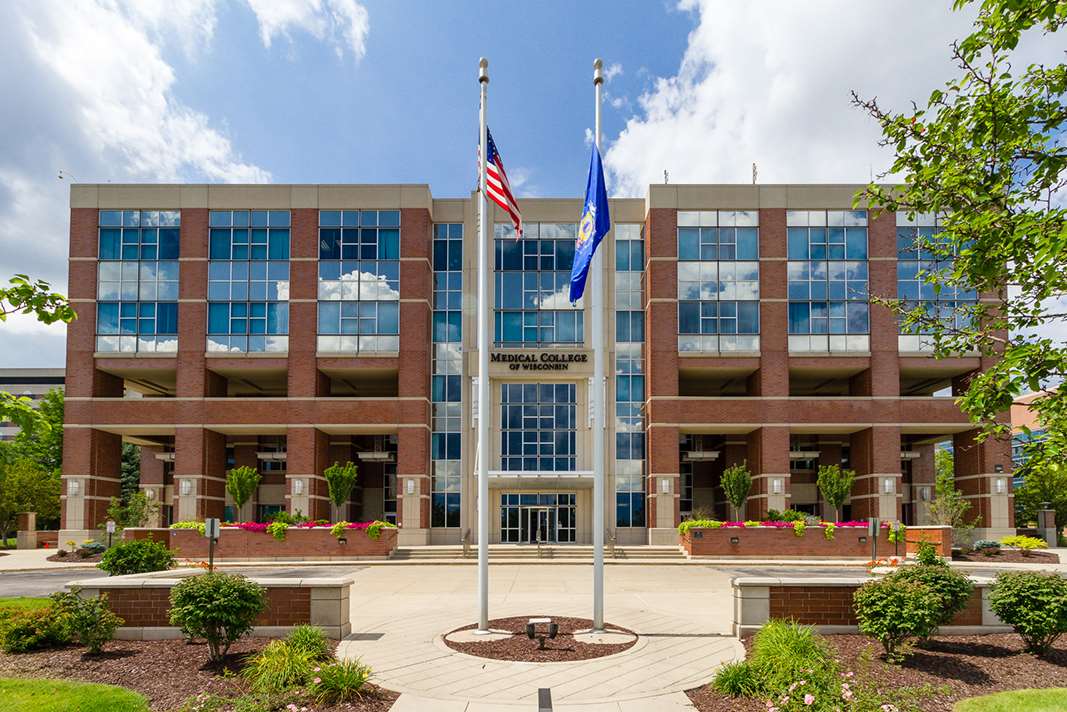Novel CAR-T Cell Immunotherapy for Lymphoma Advances to Phase II Clinical Trial
Study Results Published, Result of Collaborative Effort Led by Medical College of Wisconsin Researchers
Milwaukee, Oct. 5, 2020 – A novel cancer therapy studied and developed at the Medical College of Wisconsin (MCW) with promising clinical outcomes is leading to a larger phase II trial to improve on the current standard of care. Results of phase I of the first-in-the-world double targeted chimeric antigen receptor (CAR) T-cell therapy clinical trial were published in Nature Medicine today.
This is a novel, cell-based treatment against cancer targeting two proteins (antigens CD19 and CD20) on the surface of cancer cells. This CAR-T cell therapy trial began in October 2017 and resulted in safe and promising outcomes for patients with relapsed and refractory B cell non-Hodgkin lymphomas which are cancers of the immune system. MCW researchers collected patients’ own immune cells (T-cells) and then used a specially engineered virus to augment their ability to identify and kill cancerous cells and effectively destroy the lymphoma. While phase I focused on safety and feasibility of the treatment, a multi-institutional phase II is being developed to determine the true efficacy and understand how the nuances of the treatment process can result in excellent outcomes for a larger subset of patients.
All patients in the clinical trial had failed prior treatments and their cancer had relapsed. Within 28 days of the CAR-T cell therapy, 82 percent responded positively. Six months later, more than half of the patients’ cancer remained in remission. A higher dose of the treatment correlated with a prolonged remission, a trend the researchers plan to study further in the trial’s second phase.

Scans of a patient participant reveal a significant decrease in the body’s cancer cells from pre- to post-CAR-T cell therapy. In the left image, the black masses show cancer cells, and the image on the right shows a remission at day 28 of treatment.
“Immuno-oncology using T-cell treatments shows incredible promise for cancer patients,” said Nirav Shah, MD, MSHP, principal investigator of the trial, associate professor of medicine in the division of Hematology and Oncology at MCW, and lymphoma and stem cell transplant specialist at the Froedtert & the Medical College of Wisconsin Clinical Cancer Center at Froedert Hospital. “This is a giant leap forward in personalized medicine. Very few cancer centers offer these novel combination of resources and high level of personalized medicine expertise. The encouraging results of this trial pave the way for more effective and efficient treatment options.”
While CAR-T cell therapy has been under development since 2012, the Froedtert & MCW Clinical Cancer Center treated the first patients using this dual-targeted gene therapy. The new treatment genetically alters a person’s own immune cells to target cancer cells in a unique and personalized fashion, a significant departure from more routine chemotherapy.
The cell product used for treatment was manufactured using the CliniMACS Prodigy® device, which is part of an automated CAR-T cell manufacturing platform developed by Miltenyi Biotec, a global company dedicated to enabling cellular and gene therapies. A colloboration of scientists and clinicians recognized the potential of this treatment several years ago and began acquiring necessary equipment to prepare for a clinical trial. Housed at the Froedtert & MCW Clinical Cancer Center, the CliniMACS Prodigy® device enabled the research team to conduct the CAR-T cell immunotherapy through a self-contained, desktop system, producing new cells ready to be infused back into a patient’s bloodstream within 14 days. With the device, the entire process was performed locally at Froedtert Hospital, saving precious time for the patients.
“We are harnessing knowledge from decades of research to improve outcomes for patients with lymphoma,” said Parameswaran Hari, MD, MRCP, MS, senior author and professor and chief of the Division of Hematology and Oncology at MCW, specializing in treating individuals with myeloma, leukemia and lymphoma at the Froedtert & MCW Clinical Cancer Center. “There is amazing potential here for the future of not just lymphoma patients but patients with many other cancers.”
This research was made possible through philanthropic dollars raised by the Children’s Wisconsin Foundation and the MACC Fund (Midwest Athletes Against Childhood Cancer, Inc.) and their support of the Cell Therapy Lab at MCW.
“This clinical trial demonstrates the strength of the partnerships across this campus and the power of academic medicine,” said David Margolis, MD, program director of the Bone Marrow Transplant (BMT) and Cellular Therapy Program and professor of pediatrics and interim chair of the Department of Pediatrics at MCW. “The expertise of MCW researchers, state-of-the-art facilities of Children’s and Froedtert and generosity of this community made this work possible.”
NOTE: This press release was submitted to Urban Milwaukee and was not written by an Urban Milwaukee writer. While it is believed to be reliable, Urban Milwaukee does not guarantee its accuracy or completeness.
Mentioned in This Press Release
Recent Press Releases by Medical College of Wisconsin
Midwests Only Holistic Brain Injury Treatment Program for Military Veterans and First Responders Adds Staff, Space Due to Rapid Growth
Dec 8th, 2025 by Medical College of WisconsinThe BRAVE program outgrows its initial space in less than two years.
Audaxity Bike Ride Raises More Than $1 Million to Accelerate Cancer Research at the Medical College of Wisconsin Cancer Center
Nov 13th, 2025 by Medical College of WisconsinFunds from the inaugural community ride will help turn discoveries into new cancer treatments, train future physician-scientists, and expand community-driven research efforts.






















